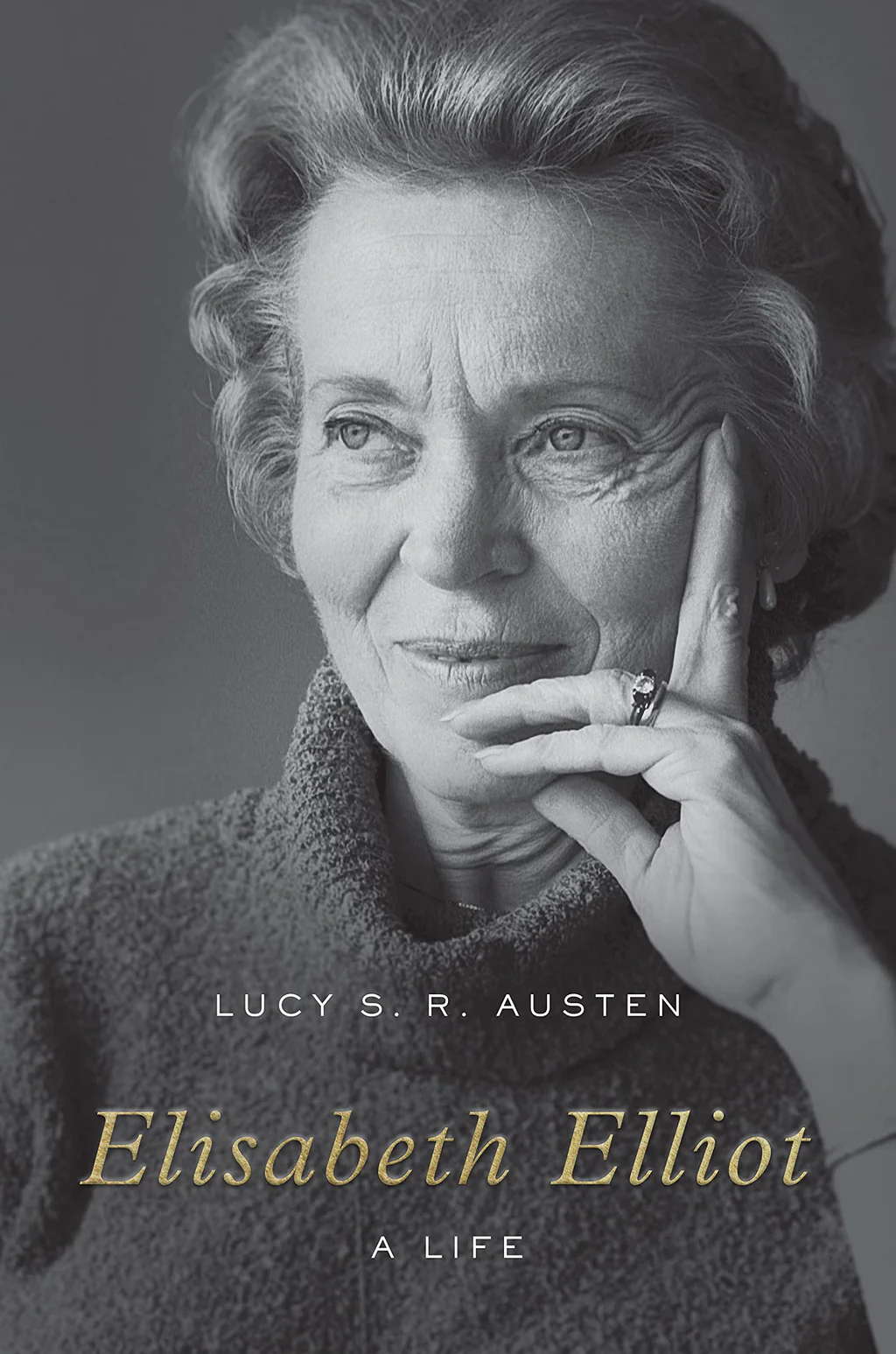
Lucy S. R. Austen
Reviewed by: Ann Hart
Elisabeth Elliot: A Life, by Lucy S. R. Austen. Crossway, 2023. Hardcover, 624 pages, $39.99. Reviewed by OP member Ann Hart.
Evangelical icon Elisabeth Elliot believed that “we read biographies to get out of ourselves and to get into another’s skin, to understand the convulsive drama that shapes, motivates, and issues from the other life.” This kind of emotional empathy pervades Lucy S. R. Austen’s Elisabeth Elliot: A Life. The author succeeds in deftly presenting a complicated woman who vaulted into prominence after the 1956 martyrdom of her young husband, Jim, and his four missionary colleagues by the Auca Indians in the jungles of Ecuador.
Many readers will be familiar with this brief overview of Elliot’s story and may expect an inspirational book. However, Austen, after reading Elisabeth’s personal journals and letters, conducting dozens of interviews, and examining the twenty-five-plus books that Elliot penned, offers a public and private woman who revised her thinking often through her long life.
Elisabeth grew up in an evangelical home with five siblings. The family led a disciplined and religious life influenced greatly by the Victorious Life movement, where the quest for full sanctification was emphasized.
At Wheaton College, Elisabeth Howard met Jim Elliot. She majored in English but changed her major to Greek when she felt called to Bible translation. Jim and Elisabeth shared a strong evangelical piety and a desire for active, mission-driven lives. When they finally married, they shared less than three years together before the “convulsive drama” of Jim’s violent death. Elliot was left a widow at age twenty-nine, caring for their young daughter, Valerie.
As Austen recounts, this news event captured the public’s imagination. Life magazine editor Henry Luce dispatched photographer Cornell Capa to Ecuador twice to document the story. When Capa produced an eight-page photo spread in Life, 76 percent of American adults read the magazine piece.
For Elisabeth, mourning was often in solitude. She threw herself into replying to letters and sympathy cards. At one point she was writing one hundred letters a week. Following this time of frenetic correspondence, parenting Valerie alone, and language study, she entered a season of profound sadness. “Sometimes I wonder how I can possibly go on without Jim. The future seems a complete blank to me.”
Against the advice of many, the strong-willed Elliot decided to stay on the mission field and try to continue the work she and Jim had started. Elliot lamented that despite her intensive language study, she understood little in her communication with the Indian tribe. She recognized that her daughter Valerie outshined her in language skills. “She not only spoke Auca but thought in Auca,” Elliot quipped.
New York’s Harper Publishers, aware of the country’s continued interest, encouraged Elliot to write the story of the five missionaries. Critical of overly sentimental Christian books, Elliot determined to tell hard truths. Under deadline pressure from Harper, she finished Through Gates of Splendor in an astonishing eight weeks.
From her earliest days, Elliot had spent considerable time in the Bible—reading it cover to cover many times. She studied Scripture and prayed often about her troubled relationship with Rachel Saint, the missionary assigned to help her in the work.
Elliot experienced a paradigm shift while reading Jesus’s words “you are my witnesses.” Austen writes that Elisabeth concluded that she might be a better witness than formal missionary. In 1961, Elliot announced her departure from the mission field. She became a prodigious writer and conference speaker back in New England. In 1968, Elisabeth married Addison Leith, a professor eighteen years her senior. Austen describes him as an Old School Presbyterian. During these years, Elisabeth began to think more seriously about the organized church and what worship really is. Sadly, Elliot’s second husband died a painful death from cancer.
Alone again, Elisabeth took in renters from nearby Gordon-Conwell Theological Seminary. Austen gives the unlikely details of how Elisabeth ended up marrying Lars Gren, a seminary student and housemate. She still carried on her busy schedule—including hosting a radio show and leading weekly Bible studies in Boston and Hamilton, Massachusetts. In her early seventies, Elisabeth was diagnosed with dementia. She worked as long as she could write and speak, dying in 2015 at age eighty-eight.
This 530-page biography will be loved by many and disappointing to others. It is not a triumphal strength-to-strength narrative, nor a devotional guide. Instead, it is a beautifully written spiritual and psychological portrait of a sometimes-inconsistent woman who represented the evangelical ethos of the late twentieth century. At the close of her book, Austen writes, “For Elisabeth Elliot, the foundation of life was trust in the love of God. [N]ot trust that things would go well, but trust in who God is.”
April 27, 2025
The Devoted Mind: Seeking God’s Face in a World of Distraction
April 20, 2025
April 13, 2025
Suffering: God’s Purpose in Our Pain
April 06, 2025
Sunday Matters: 52 Devotionals to Prepare Your Heart for Church
March 30, 2025
On the Trail with a Missionary
March 23, 2025
Midnight Mercies: Walking with God Through Depression in Motherhood
March 16, 2025
© 2025 The Orthodox Presbyterian Church